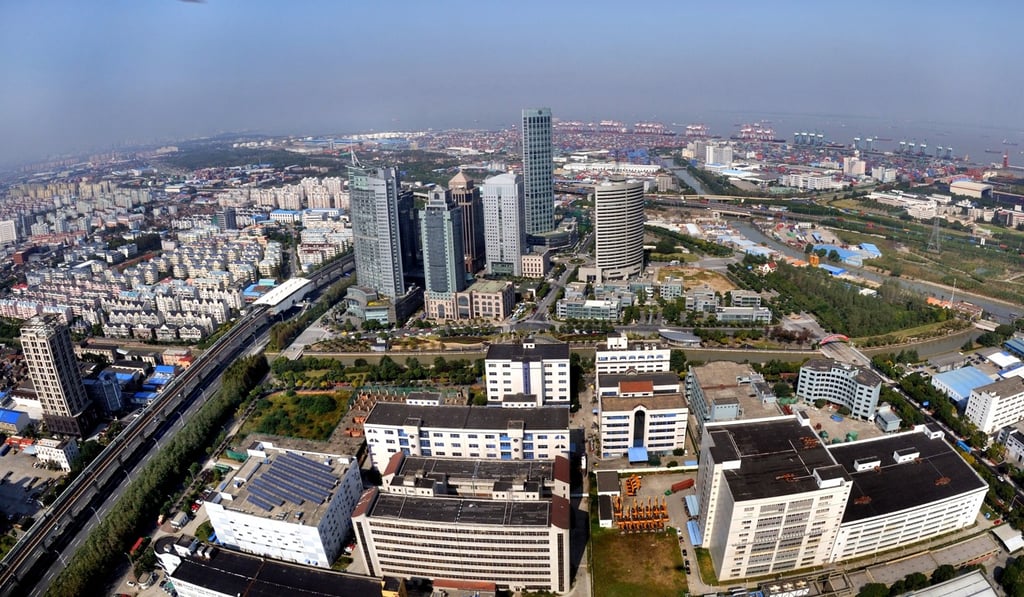China doubles size of Shanghai Free-Trade Zone to include Tesla town in drive to open markets
- FTZ expanded to encompass Lingang, the site of American carmaker’s new factory
- Tax incentives and exemptions offered to attract talent and infrastructure

China announced new tax incentives and import duty exemptions on Tuesday, as it formally expanded the Shanghai Free-Trade Zone (FTZ) amid rising trade war tensions with the United States.
The State Council, the country’s cabinet, unveiled the plan to double the size of the zone by adding Lingang, an area newly reclaimed from the sea.
Lingang is roughly the size of the Hong Kong special administrative region and is home to carmaker Tesla’s first factory outside the US.
The expansion comes after a decade of growing competition between mainland ports and Hong Kong, with Shanghai also mulling plans to transform Lingang into a mini-Hong Kong free marketplace over the next two decades.
The 13-month trade war with the US has pushed China to show more openness to the world on trade and at the announcement on Tuesday, Chinese vice-commerce minister Wang Shouwen, a key player in the trade talks with Washington, underscored Beijing’s commitment to continue the process.
